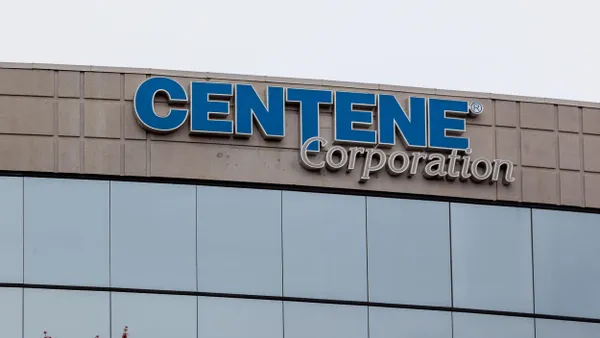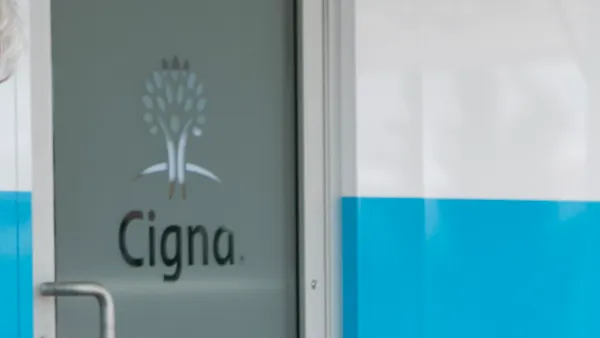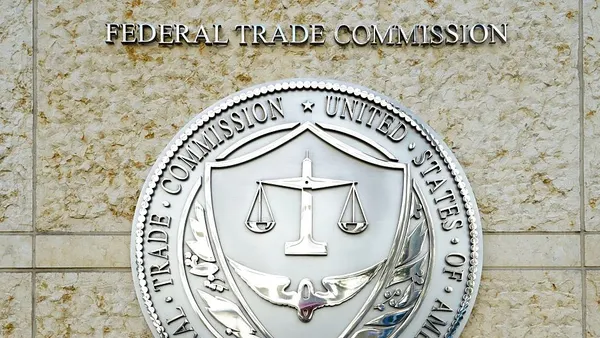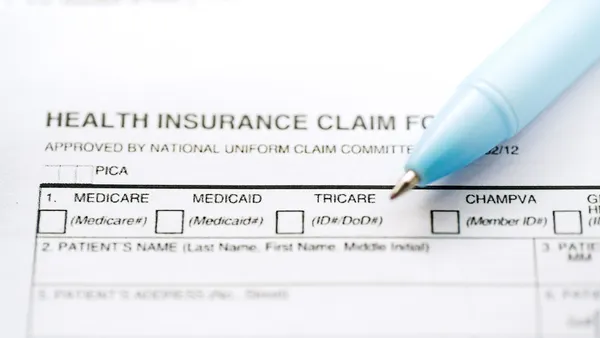Dive Brief:
- Iowa passed a law last week that places limits on pharmacy benefit managers, joining a growing number of states cracking down on the drug middlemen in an effort to constrain rising prescription drug costs and protect rural pharmacies.
- The legislation includes numerous provisions aimed at tamping down on PBMs’ “outsized control” over the pharmaceutical supply chain, Gov. Kim Reynolds said in a statement. That includes preventing PBMs from steering patients to particular pharmacies, equalizing reimbursement between pharmacies and reforming how PBMs are paid.
- However, some experts have raised concerns that the law could lead to higher costs for health plans and patients.
Dive Insight:
Iowa’s push to regulate PBMs comes amid an ongoing national conversation about how the drug middlemen influence the affordability of and access to prescription drugs in America.
The companies argue they help lower drug prices by negotiating drug discounts with pharmaceutical manufacturers. However, PBMs have faced growing criticism over certain controversial business practices, including paying independent pharmacies lower rates than in-house pharmacies, directing business to their owned subsidiaries and profiting from spread pricing — in which PBMs charge insurers a higher price for a drug than what they reimburse the pharmacy for dispensing it, and then keep the difference.
Part of the problem, critics allege, is the PBM industry is too consolidated: The “Big Three” operated by CVS, UnitedHealth and Cigna jointly control about 80% of the U.S. prescription drug market.
Iowa’s law, called Senate File 383, seeks to address such concerns by limiting PBMs’ ability to steer patients and increase reimbursement to their own pharmacies. It’s similar to laws passed this year in Texas, Georgia, Indiana and Montana, according to Reynolds, and comes on the heels of landmark legislation in Arkansas, which prevents pharmacy benefit managers from owning or operating pharmacies.
Under Iowa’s law, PBMs are forbidden from stopping patients from selecting the in-network pharmacy of their choice, or from nudging patients to a specific pharmacy through a monetary incentive or penalty.
PBMs can’t reimburse any pharmacy less than it pays its own pharmacies for dispensing the same drug — and that reimbursement has to match the most recent national average drug acquisition cost. PBMs also have to pay pharmacists a dispensing fee.
Notably, PBMs will also have to pass through all rebates they negotiate with drugmakers to their health plan clients. Such “pass-through” pricing models have been included in other state laws as a check to ensure PBMs are sharing the savings they receive, instead of profiting from them — though, major PBMs say the majority of their contracts are already 100% pass-through.
The law aims to increase transparency and competition by requiring PBMs to give all pharmacies in a geographic coverage area the chance to participate in its pharmacy networks. PBMs will also have to inform members the names and locations of all covered pharmacies.
Pharmacies will also have more recourse to appeal PBM decisions under the law.
Advocates for Senate File 383 say it will help keep small, rural pharmacies in business. More than 30 rural Iowa pharmacies have closed since last year, according to Reynolds. Kate Gainer, CEO of the Iowa Pharmacy Association, said that number soars to over 200 when looking at the past decade.
“Governor Reynolds' leadership and the Iowa Legislature's bipartisan support of SF 383 sends a powerful message that the health of Iowa communities comes first,” Gainer said in a statement. “For too long, PBMs have put profits over patients ... This law gives us the tools to level the playing field and protect access to care, especially in rural areas.”
Still, Reynolds appears to have heard other industry groups’ concerns that the bill’s passage could bring some unintended consequences — especially in terms of rising costs.
An analysis from the nonpartisan Legislative Services Agency found the law could would increase costs to the state’s self-funded health plan by $3.9 million to $8.2 million and cause copays to rise for members in the plan by $742,000 to $970,000 annually beginning next year.
The Iowa Association of Business and Industry lobbied hard against SF 383, citing concerns about its financial repercussions.
“Senate File 383 includes expensive, unneeded provisions that are going to drive up the costs of pharmacy services in Iowa without any discernable improvement in patient care,” a spokesperson said in a statement. “Iowans — including businesses and employees — will bear these costs at the pharmacy counter and in the structure of their health care plans. This is an additional headwind in an already challenging business environment.”
Reynolds, a Republican, called the decision to sign the bill a “difficult” one, in part due to concerns about cost. The administration plans to monitor implementation “to mitigate and ensure that any unintended consequences for private employers are addressed,” she said.
Rebecca Pifer contributed reporting.













